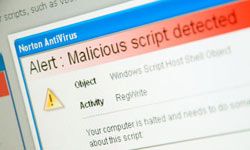Hygiene is important! Most of us have it under control for ourselves, but for a lot of our technology, it's a bit messier under the hood. Just like keeping your house clean or brushing your teeth addresses problems before they can start, a little prevention of common computer problems can save you hours and dollars down the road. And, as with any intimidating situation, even a little foreknowledge and preparation can be vastly empowering.
For complicated machines like our cars, computers and gadgets, it's easy to be overwhelmed. It's not that we're being walled off from that knowledge at all -- they're our machines, we should know how to work with them, and the information is readily available -- but it can sometimes feel like an episode of "House" in there: Change one thing over here, and suddenly it's going haywire in a completely different area. So we tend to just shrug and keep going, even though our tech could work better than it does.
Advertisement
If you think about how much of your daily life is spent working with, or deriving benefit from, your desktop or laptop computer, that can be scary all on its own. It's a catch-22, in a way: We don't want to mess with our computers because we don't want to cause problems, so we treat the back end like a room we never go into ... which causes problems! Not everybody can be a DIY mastermind -- I'm certainly not one -- but with a few simple routines and tips, you can keep your computer's works as clean as a whistle without ever feeling like you've crossed the line or permanently ruined everything.
In this article, we'll look at the best ways to keep your machine working smoothly and quickly without breaking your budget -- or causing more problems as you learn.



